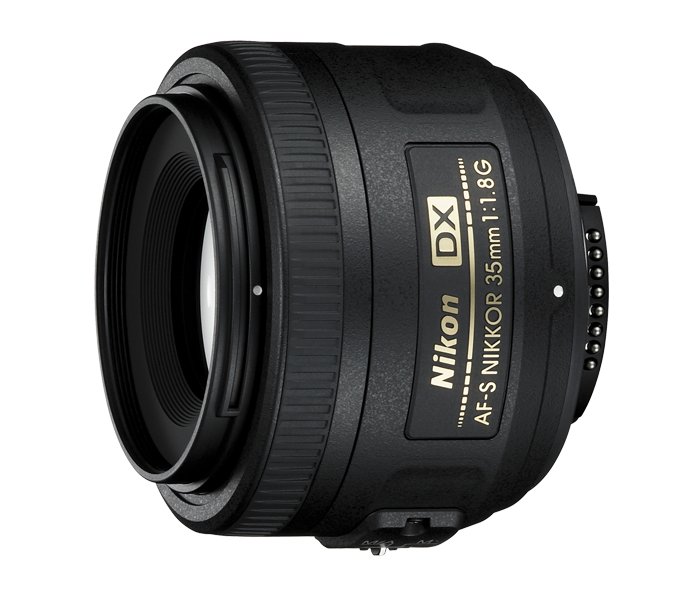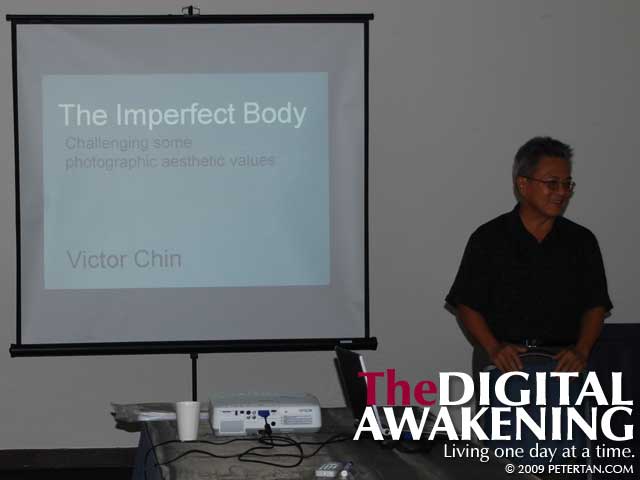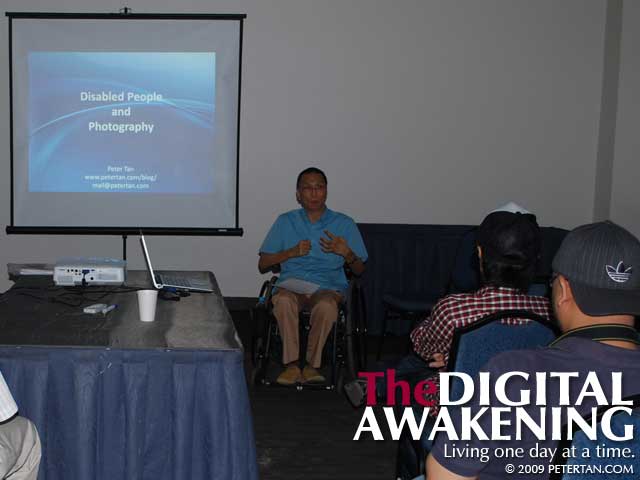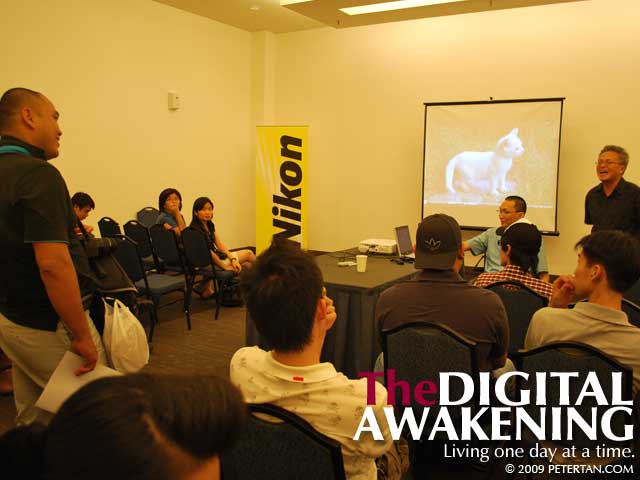To photographers, rechargeable batteries are as important as the photographic gear itself. These batteries power the cameras and flash guns. The common types are Lithium-ion (Li-ion) and Nickle Metal Hydride (NiMH). Li-ion are usually proprietary batteries manufactured for specific models of cameras only. NiMH on the other hand can be used on cameras that accepts AA-sized batteries which includes many compact cameras.
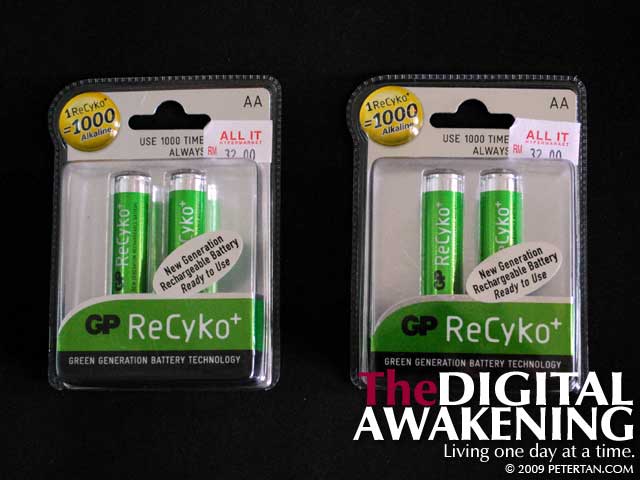
Photo by Wuan.
I have been using AA-sized NiMH batteries since 2003 when I bought my first digital camera. NiMH those days were unreliable. The power of some would be exhausted after only fifty or sixty shots fresh from the charger. The other disadvantage about these batteries is that they have poor power retention. Their power will be totally exhausted in about one week. That was the reason why I carry a pack of alkaline batteries for those “just in case” moments. Comparartively, alkalines are single use and expensive.
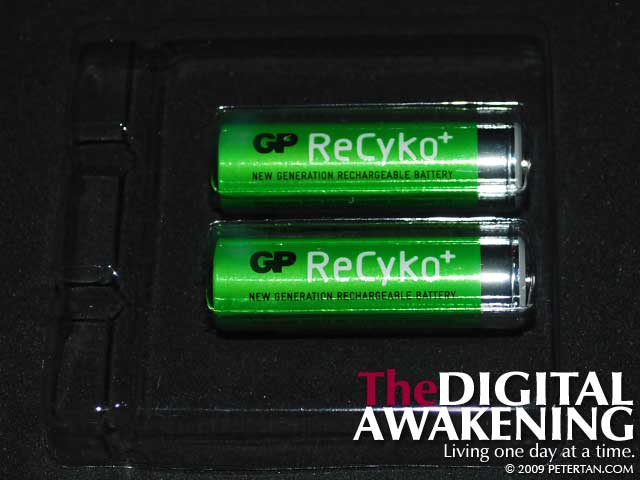
Photo by Wuan.
The older generation of NiMH batteries come uncharged. The new generation comes pre-charged. These include Sony Cycle Energy, Sanyo Eneloop and GP Recyko+. I have been using a set of four Sanyo Eneloop AA-sized batteries on my Canon Powershot A610 for two years now. Wuan has been using hers for the Canon Powershot A90 close to three years already. Both sets still retain their charge well after a few weeks.
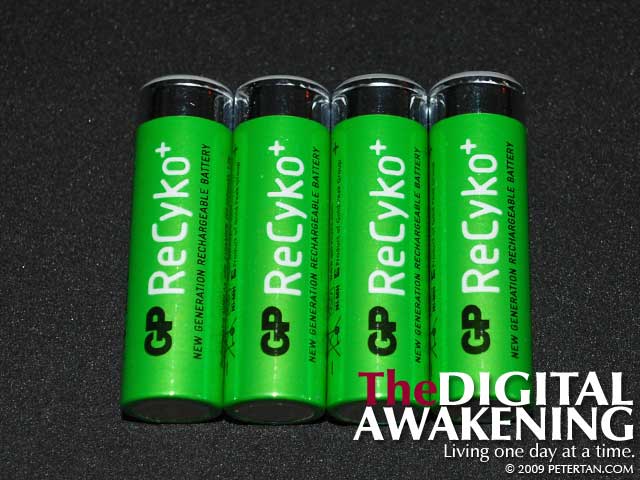
Photo by Wuan.
Recently, I got the Nikon Speedlight SB-600 for the Nikon D60. The flash unit takes four AA-sized batteries. Wuan has been taking the Eneloop from my A610 to use in the SB-600. It is a hassle as when I need to use the compact camera, I have to retrieve it from the flash and put it back into the A610. When we were at Low Yat Plaza recently, I got I bought 2 packs of 2 AA-sized GP Recyko+ pre-charged batteries to be used for the SB-600.
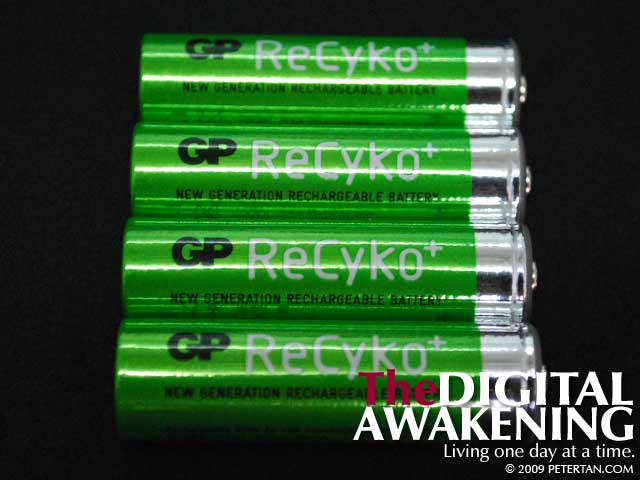
Photo by Wuan.
One pack of 2 batteries cost RM32. The batteries come with a charger too but that costs RM88 per set and comes with four batteries. It is actually quite a bargain as I had previously paid RM150 for a charger only. However, I have 2 units of chargers that are still in working order. Over the next few weeks, I am going to test the Recyko+ to see if they are as reliable as the Eneloop.

